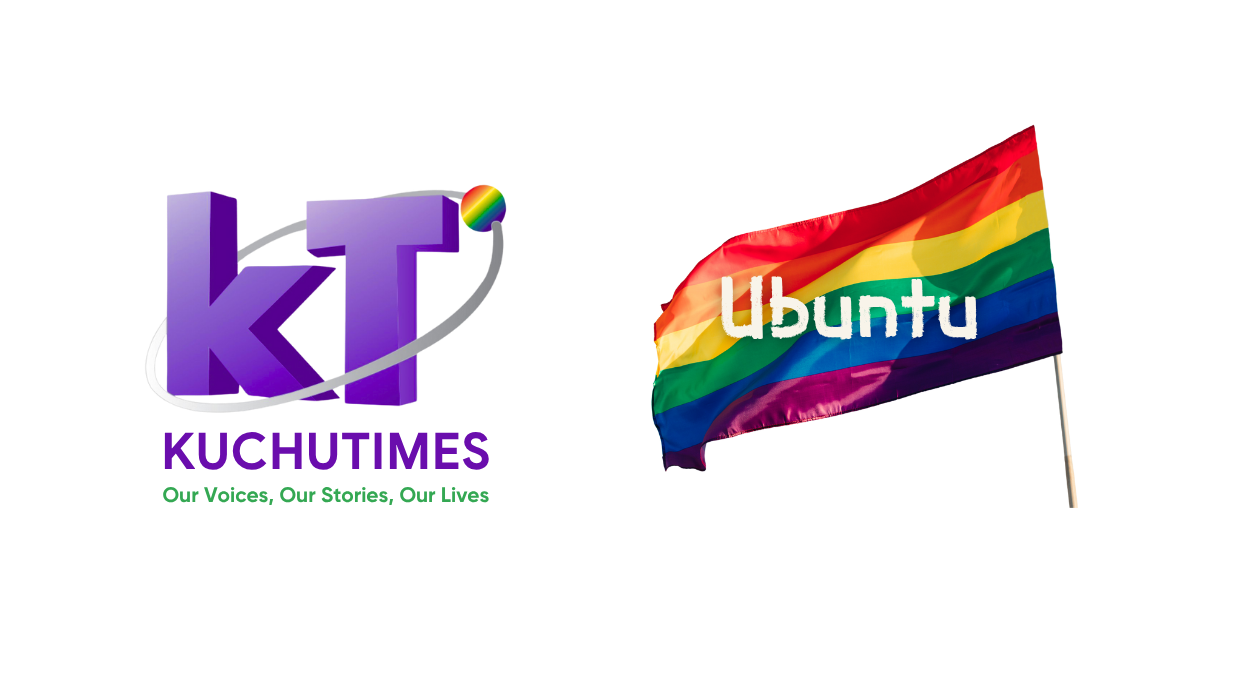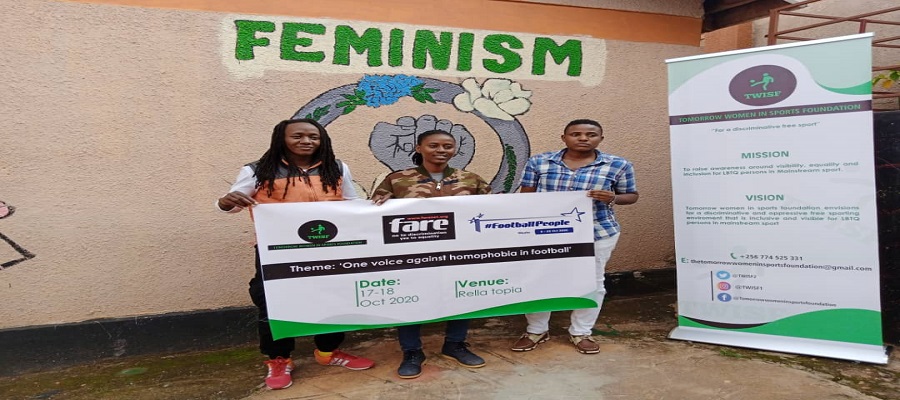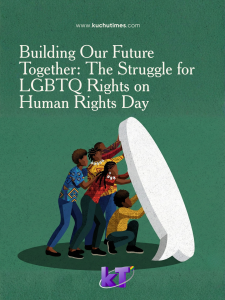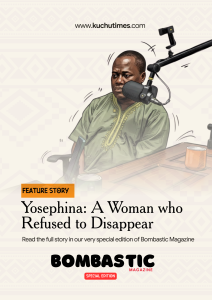Tomorrow Women in Sports Foundation (TWISF) will on Sunday 18th October 2020 host an event dubbed the One Voice Against Homophobia in Sports training. This event which is supported by the Fare Network will be held during the Football People Week and aims at advocacy against acts of homophobia and transphobia perpetrated towards LBQT persons in the sports field.
Kuchu Times spoke to Jay Mukasa, the Executive Director TWISF, about the importance and relevance of this event to the LBQT community and what the organization hopes to achieve with the entire project.
KT: Please give us a brief introduction to Tomorrow Women in Sports Foundation
JM: Established in 2017, TWISF is an LBTQ led organization that focuses on promoting and advocating for the rights of LBQ women and transmen in sports by creating an equal environment that empowers them to take on sports leadership positions, advocating for equality, non-discrimination policies, social justice inclusion and visibility in mainstream sports.
KT: What is the One Voice Against Homophobia project about?
JM: The whole campaign stems from the fact that sports is not a safe place to be gay. Many LGBT people avoid taking part in sports because they fear that they might be subjected to homophobic or transphobic abuse. LBTQ sports persons must battle stereotyping of feminine behaviour and there is often corresponding fear of being labelled to be gay.
Due to underlying homophobia, it’s hard because men and women compete differently especially those that have gone through significant effects at elite level after gender re-assignment.
TWISF realised that there is need for sports to be more inclusive and welcoming for marginalised persons in Uganda and One Voice Against Homophobia aims at addressing the effect of homophobia, transphobia and biphobia in the Ugandan sports fraternity.
Mental health issues are also on the rise and many LBTQ athletes have found sports to be an arena of socializing and stress relief to better their mental wellness.
KT: What is Football People Week and Fare Network?
JM: The Fare Network is an umbrella organisation that brings together individuals, groups and organisations driven to combat inequalities in football and use sports as a means for social change. Fare Network’s commitment to tackle discrimination through football’s inclusive power is based on the principle that the game, as the most popular sport in the world, belongs to us all and can propel social cohesion.
The #FootballPeople weeks is the largest campaign for social change and diversity in global football. During the two-week period over 150,000 people in more than 50 countries organise and participate in events and activities to bring about social change. TWISF is proud to be a part of 150,000 in the world to participate in the campaign to fight discrimination in sports by organising a workshop named one voice against Homophobia to address the effect of Homophobia, trans and biphobia on sports to also add a our voice to thousands of other fellows around the world who are struggling to achieve equality in sports.
KT: How inclusive is the sports world for LBTQ athletes in Uganda?
JM: By its very nature, sport is an ideal arena in which to tackle discrimination and to champion equality of opportunity and fair play for all. So, there should be no place for homophobia, biphobia or transphobia in sport.
However, some LBTQ Ugandans who either take part in sport, or would wish to take part, encounter barriers because of who they are. Another of the main aims of this training is to investigate ways in which to increase more numbers of LGBTQ people to participate in sport. Central to that is to understand the barriers that limit LGBT people from taking part in sport and how they can be practically addressed.
The Ugandan sports community is characterised by discrimination and the hetero-normative nature of sport. The culture of sport is often seen as being a very much male dominated one where there is a need for a clear hierarchy and certainty in relation to gender. The fact that a strict adherence to binary genders and separating males and females in sporting competitions and contexts represented particular challenges for those who are transgender, a range of popular gender stereotypes around the labelling of sports as “boys’ sports” and “girls’ sports”.
Lack of rules on how fans can associate with players of different identities, no policy apparently is in place to protect the dignity of marginalised persons on and off the fields of play but instead criminalizing them for simply being marginalised and denying them participation rights and equally access to sports facilities and active influential decisions.
While some key players in the sports sector remain sceptical about there being specific barriers to LBTQ participation, this is not a view shared by decision makers within the Ugandan Government. There is an opportunity to use the testimonies and evidence contained within this report as a springboard for action and we hope that it is an opportunity that the Ugandan Government, the sports sector and the LGBTQI community will embrace.
KT: Why should people get involved in the One Voice Against Homophobia campaign?
JM: LGBT people continue to face homophobia, biphobia, transphobia and other barriers IN participating in sport, and to a lesser extent in other physical activity. This has a negative impact on the numbers of LGBT people taking part in sport.
» While sports bodies are content to take positive action around equality in general there appears to be hesitancy on taking action related to sexual orientation or gender identity.
» Homophobic, biphobic and transphobic bullying continues to be a major problem. The use of the word “gay” to mean something that is negative is endemic within sports environments. This often goes unchallenged by leaders in different sports governing bodies, fans, coaches and yet it affects both LGBTQI and Hetro sexual people and finally sports in general.
» There is a tendency for Ugandan sports governing bodies to assume a tick box approach to the Equality Standard for Sport (the Standard) process as it impacts on LGBT people. Organisations can currently acquire a level of the Standard without addressing any specific issues around LGBT participation.
» There remains a lack of understanding and awareness of key pieces of legislation affecting LGBT people. These include the anti discriminative policies and the equality policies. Uganda being highly homophobic country where being gay is criminalised there is need to strategize different sports approaches where we can create awareness about LGBTQI issues and celebrate diversity more often through sports.
In recent years Ugandan LBTQ community has seen improvements in many aspects of their lives. Some of these changes have been brought about by legislation passed at; some are due to a welcome and immense denial within the Ugandan society.
However, it is clear from research as well as from the day to day experiences of LBTQ Ugandans, that discrimination exists – in sports clubs, schools, in workplaces, and as revealed by different players who have fallen victims, news papers and different shows on both television and radio programs.
TWISF identified the need to issues that hinder transmen, lesbians, bisexual and queer Ugandans to participate in sports actively, take on sports leadership positions, administrative roles and ushering into mainstream sports journalism we therefore demonstrated a need to develop and support LGBT sports persons in Uganda, raising concerns about the homophobic, biphobic and transphobic nature of sports environments, and the need to make sports more inclusive which for a very long time has led to a high drop out rate of talented LBTQ persons from sports hence affecting Uganda’s visibility on the international scene in regard to different sports representation.
KT: What do you hope to achieve from this campaign?
JM: Sport does not exist or take place in a vacuum. We recognise the huge influence sport has on Ugandan society. By tackling homophobia and transphobia in Ugandan sport we believe there will be significant benefits to social attitudes towards LBTQ sports persons in Uganda.
One voice against homophobia therefore represents a starting point in tackling this issue. We recognise that there is a role for organisations like ourselves in engaging with sporting partners to address the issues highlighted.
Investigate ways in which the numbers of LGBT people participating in sport might be increased. Central to that is understanding what, if any, barriers are in the way of LGBT people taking part in sport. Empowering LBTQ sports members to join the movement of liberating their freedom of expression through sports, participation, equal access to sports facilities and leadership roles, equal pay and dignity on and off the pitch and finding sustainable solutions to all the above challenges.




